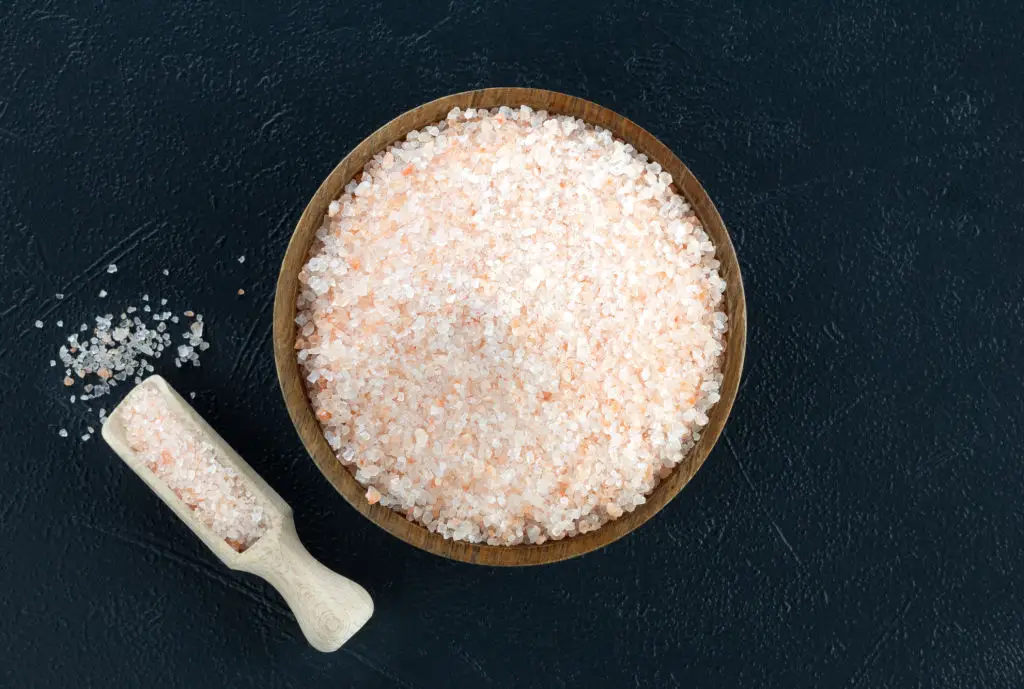The Silent Crisis: 11 Overlooked Habits That Are Secretly Spiking Your Blood Pressure
Most of us think about blood pressure only during doctor visits, or when we’re worried about family history and health risks. But your blood pressure isn’t just a number on a chart—it’s a real-time story about how everyday life shapes your heart’s well-being. Sometimes, the daily routines we take for granted work quietly against our best intentions. It isn’t always about major missteps or “bad” habits; it’s the subtle patterns that build up over time. If you’ve ever wondered why your pressure creeps up, even when you do “everything right,” you’re far from alone. Hidden in plain sight, some surprisingly simple habits may nudge your blood pressure higher without you realizing it. The gentle truth? Awareness is a compassionate first step, not a cause for blame. This isn’t another checklist to shame you or spark anxiety. Instead, think of it as a guided walk through some common, yet overlooked, routines—each offering a door to better self-care. By understanding what might be quietly pushing your pressure up, you empower yourself to make tiny, meaningful shifts. With a little wisdom and patience, even long-standing habits can be softened and reworked—helping you feel more vibrant and in control every day.
1. Overusing Antiseptic Mouthwash

Mouthwash is often seen as a final, fresh touch in our oral hygiene routine. But recent research hints that swishing too often—especially with strong antiseptic formulas—might do more than just zap bad breath. It could quietly raise blood pressure. Here’s why: certain mouth bacteria help convert dietary nitrates into nitric oxide, a compound that relaxes blood vessels and allows for easier blood flow. Barrier up those helpful microbes with too much mouthwash, and your body loses a natural tool for keeping pressure in check. Surprisingly, this isn’t just theoretical. Early studies show a link between regular antiseptic mouthwash use and elevated blood pressure over time. You don’t have to toss your rinse altogether—good dental care matters. Instead, consider using alcohol-free versions, or limiting mouthwash to once daily or a few times a week unless otherwise instructed by your dentist. Simple swaps or cutbacks can let your body keep its delicate balance, all while your smile stays confident and healthy.
2. Chronically Skipping Breakfast

Breakfast sometimes gets dismissed as optional, especially for adults on the go. But consistently skipping your first meal may gently nudge your blood pressure up over time. The body interprets breakfast absence as a form of stress, altering metabolism and potentially leading to higher morning cortisol levels—a hormone associated with blood pressure spikes. Some studies suggest people who regularly miss breakfast have increased risk for hypertension, even when the rest of their day seems healthy. You don’t need a five-course spread. For most people, a simple breakfast with fiber, protein, and a potassium boost does the trick—a bowl of oatmeal with fruit, or whole-grain toast with nut butter. Eating something small within an hour of waking can stabilize blood sugar, support metabolism, and help your heart start the day gently. The beauty? These are easy shifts, not big overhauls, and anyone can find a version that works for their own morning needs.
3. Extended Morning Screen Time

Our phones and tablets are often the first things we reach for—even before getting out of bed. But launching your day into emails, social feeds, or breaking news floods your mind with stimulation before your body settles into its natural rhythms. This rush of information can trigger our body’s stress response, raising heart rate and prompting spikes in blood pressure that follow you through the morning. The surprising part? Even passive scrolling may be enough to prompt these subtle shifts. If unplugging completely sounds impossible, try a small change: spend your first ten or fifteen minutes awake doing something off-screen. Stretch, look out the window, sip water, or simply breathe quietly before the digital world starts its chatter. Those quiet moments help your nervous system find a gentler start, giving your blood vessels space to ease into the day rather than jumping to attention at every alert.
4. Excess Caffeine on an Empty Stomach

Coffee is woven into countless morning rituals. But drinking strong caffeine without a buffer of food may lead to sharper and longer-lasting blood pressure elevations, especially in people sensitive to caffeine. When your stomach is empty, caffeine enters the bloodstream quickly, potentially amplifying its effects. For some, that means jitteriness, faster heartbeat, and—yes—a measurable blood pressure jump. Caffeine impacts everyone a bit differently. You don’t need to skip your favorite cup! Instead, try pairing it with breakfast, or delaying your first sip until after a small snack. Those with diagnosed high blood pressure may want to work with their healthcare provider to find a timing or blend that keeps both energy and heart health balanced. Sometimes, a simple switch in the order of your routine becomes a small act of kindness for your cardiovascular system.
5. Skimping on Hydration Early in the Day

Sleep dehydrates us all, even if it doesn’t feel like it. Starting the morning without a glass of water leaves your blood a bit thicker, making your heart work harder to push it through vessels. Even mild dehydration can cause temporary increases in blood pressure. Many people reach for coffee before anything else, but water deserves a starring role in the first act of your day. One easy approach? Keep a glass on your nightstand or kitchen counter. A few sips before anything caffeinated helps restore fluid balance, supporting smoother circulation. If you have trouble drinking cold water, try room temperature or warm with lemon. Making this a gentle, automatic step in your morning sets a positive tone—your heart rewards even the simplest acts of care.
6. Sitting Through Long Commutes

Long, sedentary commutes are a fact of life for many, yet their impact on blood pressure often slips under the radar. Sitting in stop-and-go traffic or on crowded transit causes muscles to tense, raises stress hormones, and deprives your body of physical movement for extended periods. This combination can raise blood pressure—not just during the ride, but often echoing through much of the day. Even the psychological stress of running late adds an invisible layer. Thankfully, there are ways to soften the effects. A deep breath at every red light, calf flexes while seated, or a gentle neck stretch at a long stop can help. If options allow, build in a quick walk before or after your commute—sometimes even standing and rolling your shoulders at the station is enough. Each small shift chips away at the cumulative stress, giving your vessels and heart a little breathing room.
7. Neglecting Daily Outdoor Light

We spend much of our lives indoors, especially mornings anchored to screens and artificial lights. But sunlight is more than a cheerful mood booster—it plays a powerful, if subtle, role in blood pressure regulation. Exposure to natural light in the morning resets your body’s circadian rhythms, influences hormone balance, and even supports the production of vitamin D, an important factor in cardiovascular health. Just a five- or ten-minute stroll outdoors, or opening your blinds while eating breakfast, can help. If mobility or weather limits you, even standing by a window for a few deep breaths counts. These sunlight rituals nurture more stable blood pressure rhythms and offer a gentle, welcoming start to each day.
8. Eating Salty Prepared Foods for Convenience

Fast breakfasts and grab-and-go snacks seem harmless, but they often hide surprising amounts of sodium. Even foods that don’t taste overtly salty—like bagels, breakfast bars, or deli meats—can quickly add up. Excess dietary sodium is one of the most common, yet overlooked, contributors to rising blood pressure, especially when consumed routinely in packaged or processed foods. A tiny bit of label reading goes far. Aim to swap in low-salt or fresh options where possible—think plain oats, fresh fruit, unsalted nuts. If you’re short on time, prepping a snack bag or portion size ahead of schedule can make healthy choices automatic. Remember, no one choice undoes years of habits, but with each small swap, you gift your body more space to thrive.
9. Bottling Up Daily Stress (No Release Valve)

Everyone faces stress, and life rarely hands us empty calendars or endless free time. What truly matters for blood pressure isn’t erasing stress entirely but finding honest, small ways to let it move through us—rather than storing the tension, day after day. Stress, even when hidden or unacknowledged, cues our bodies to brace and can gently elevate blood pressure over time. Sometimes, we’re so used to “powering through” that we forget to pause and exhale. A release valve doesn’t have to be elaborate. One or two slow, conscious breaths in the car, bathroom, or between meetings can help. A quick stretch, a smile at yourself in the mirror, or a soothing memory. Making time—however brief—for these micro-moments adds up, nourishing your heart and calming your system, one breath at a time.
10. Skipping Regular Blood Pressure Checks

It’s tempting to ignore health numbers, especially if you feel healthy. But high blood pressure is famously silent, often causing no symptoms until it’s already done damage. Skipping regular checks—at home, the pharmacy, or your doctor’s office—can let rising numbers go unnoticed for years. Spotting trends early helps you respond with gentle adjustments, not panic. Home blood pressure monitors are affordable and easy to use. Even tracking once every week or two gives you insight into patterns connected to stress, food, or daily life. There’s no shame in being proactive—think of it as an empowering step, a form of caring for your future self, not a commentary on your past choices.
11. Not Prioritizing Nighttime Wind-Down

Some of the biggest pressure bumps happen when sleep is shortchanged—often from overlooked choices late at night. Evening exposure to bright screens, late caffeine, or “just one more episode” can disrupt your natural wind-down, leading to restless sleep and a body primed for stress. The result: consistently higher blood pressure, day after day. Creating a gentle pre-bed routine doesn’t require hours or elaborate products. Dim the lights an hour before rest, swap a caffeinated beverage for herbal tea, and experiment with relaxing music or reading instead of scrolling. Each step is a small message to your brain and heart: it’s safe to let go. Over time, these rituals can make a notable difference, both in restfulness and the quieter steadiness of your blood pressure.
Gentle Awareness Is Powerful Self-Care

There’s no need to overhaul your entire life overnight. The habits outlined here are often so woven into our routines that we barely notice their effects. But knowing is the first form of compassion we offer ourselves—allowing for gentle adjustments rather than rigid rules. Every mindful tweak, every small act of care, adds up. These “silent” habits are not indictments or failures; they’re natural, human responses to busy lives. Embracing change is about tending to your well-being at your own pace. By gradually choosing awareness over autopilot, you open the door to healthier rhythms without sacrificing joy or comfort. Let these habits serve as invitations, not obstacles—each an opportunity to nurture your body, honor your journey, and step confidently into a future where your heart is heard and supported, one gentle choice at a time.